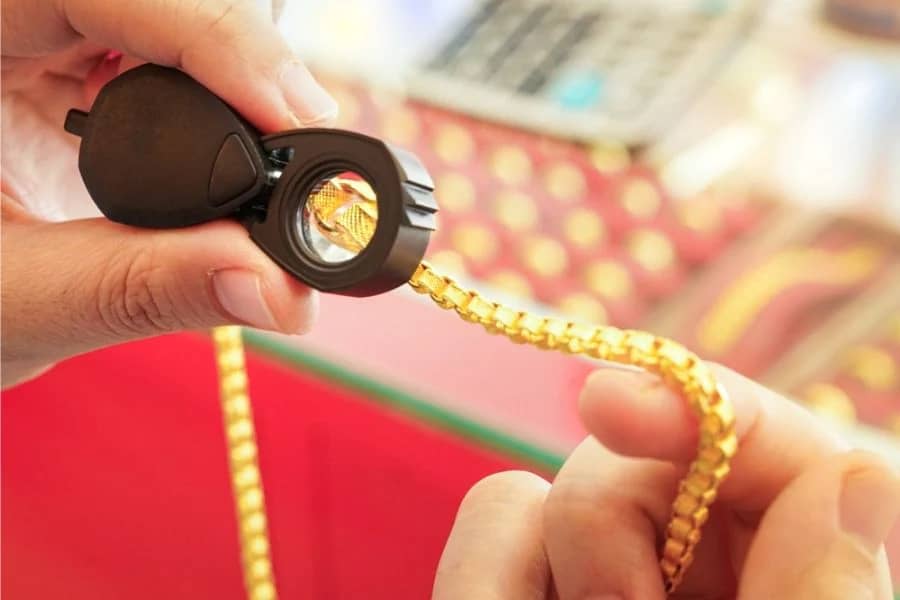Jewelry appraisals can be a daunting process. Have you ever wondered what you need to know in order to properly appraise jewelry? This article will provide an overview of the art of jewelry appraisals and the key elements to consider when appraising jewelry. You will be able to learn the basics of jewelry appraisals and how to properly value jewelry.
1. Understanding the Appraisal Process
Jewelry appraisals can be complex, and it’s important to understand the process before you have an item appraised. The appraisal process begins with the appraiser inspecting the item. The appraiser will look at the piece to determine its age, condition, materials used, and any other relevant information. The appraiser will also look for any signs of damage or wear. They may also take photographs of the item.
The next step is to evaluate the item’s market value. This is done by researching similar items that have been sold in the past. The appraiser will use this data to determine an estimated value for the piece. In some cases, the appraiser may also use a grading system to assess the quality of the item.
The final step is to document the appraisal. The appraiser will prepare a written report that details all of the information about the item. This report will include the estimated value of the item, any special features, and any other relevant information. This report should be kept in a safe place, as it can be used for insurance purposes in the event of theft or damage.
It’s important to remember that the appraisal process can be complex and time consuming. A qualified appraiser should be consulted if you are considering having a piece of jewelry appraised.

2. Qualifications of a Professional Appraiser
Jewelry appraisals are a specialized skill that requires knowledge and experience. Professional appraisers must have qualifications in order to properly assess the value of jewelry.
The qualifications of a professional appraiser include:
- A thorough understanding of gemology and jewelry construction.
- Knowledge of the current market values for jewelry.
- The ability to identify and evaluate the quality and condition of jewelry.
- The ability to accurately assess the value of jewelry.
- Professional accreditation from a trusted body such as the Gemmological Association of Great Britain (Gem-A).
It is important to ensure that the appraiser you use has the necessary qualifications to accurately assess the value of your jewelry. The appraiser should be able to provide proof of their professional accreditation in the form of a certificate or diploma.
3. Documentation and Reports
Documentation and reports are a crucial aspect of jewelry appraisals. They provide a detailed description of the jewelry, including its quality, condition, and value. The documentation should be accurate, clear, and concise, and include photographs of the jewelry from different angles.
When creating documentation and reports, it is essential to follow industry standards and guidelines, such as those set by the International Society of Appraisers (ISA) or the American Society of Appraisers (ASA). These organizations provide resources and training for appraisers to ensure their reports meet the highest standards.
Documentation and reports are often required by insurance companies, attorneys, and courts in the event of loss, damage, or legal disputes. They can also be useful for estate planning, tax purposes, and selling or buying jewelry.
It is important to keep documentation and reports up to date and to review them periodically to ensure their accuracy and relevance. If you need help with documentation and reports, consider consulting with a qualified jewelry appraiser or appraisal organization.

4. Appraisal Fees and Costs
When getting your jewelry appraised, it’s important to understand the fees and costs associated with the process. Most appraisers charge an hourly rate, which can range from $50 to $150 per hour. The amount of time it takes to appraise your jewelry will depend on a variety of factors, such as the complexity of the piece, its age, and its condition.
In addition to the hourly rate, some appraisers may charge a flat fee for appraising certain types of jewelry, such as engagement rings. It’s important to ask about these fees upfront so you can budget accordingly.
It’s also important to note that some appraisers may charge additional fees for services such as cleaning, photography, and research. Again, it’s important to ask about these fees upfront so you can avoid any surprises.
It’s also important to choose an appraiser who is qualified and experienced. Look for someone who is a member of a professional organization such as the National Association of Jewelry Appraisers or the Gemological Institute of America.
Overall, the cost of a jewelry appraisal will depend on a variety of factors, but it’s important to choose a qualified appraiser and ask about all fees upfront to avoid any surprises.
5. Insurance Coverage for Jewelry
Insurance coverage for jewelry is an important consideration for anyone who owns valuable pieces. In the event of loss, damage, or theft, insurance can provide financial protection and peace of mind. Here are some things to keep in mind when considering jewelry insurance:
- Review your existing insurance policies: Some homeowners or renters insurance policies may include coverage for jewelry, but it may be limited. Review your policy to see what types of losses are covered and what the limits are.
- Consider a separate policy: If your existing policy does not provide sufficient coverage, consider purchasing a separate policy specifically for your jewelry. This can provide broader coverage and higher limits.
- Get an appraisal: To ensure that you have the correct coverage, it’s important to have your jewelry appraised by a qualified appraiser. This will help you determine the value of your pieces and ensure that you have adequate coverage.
- Keep documentation: Keep receipts, appraisals, and photos of your jewelry in a safe place. This will make it easier to file a claim in the event of loss or damage.
- Understand the terms of your policy: Make sure you understand what is covered and what is not. Some policies may have exclusions or limitations that you need to be aware of.
Overall, insurance coverage for jewelry is an important consideration for anyone who owns valuable pieces. By understanding your options and getting the right coverage, you can protect your investment and enjoy your jewelry with peace of mind.
6. The Benefits of Having a Professional Jewelry Appraisal
Having a professional jewelry appraisal is essential for anyone who owns valuable jewelry, whether it be for insurance purposes, estate planning, or simply curiosity. Here are some benefits of having a professional jewelry appraisal:
- Accurate Valuation: A professional appraiser will assess your jewelry accurately and provide a detailed report on its value. This report can be used for insurance purposes or to sell the jewelry.
- Protection: In the event of loss or damage, a jewelry appraisal can provide protection and ensure that you receive the proper compensation.
- Peace of Mind: Knowing the exact value of your jewelry can give you peace of mind and help you make informed decisions about how to care for it.
- Estate Planning: A jewelry appraisal can help you with estate planning by providing an accurate valuation of your assets.
- Expertise: Professional appraisers have the expertise and tools to assess your jewelry accurately and provide a detailed report on its value.
It is important to choose a qualified and experienced appraiser who is accredited by a reputable organization. You can find a qualified appraiser through the National Association of Jewelry Appraisers or the American Society of Appraisers.

Conclusion:
Jewelry appraisals are essential for understanding the value and authenticity of a piece. Whether for insurance purposes, resale, or personal knowledge, an appraisal provides a detailed description of the jewelry, including its materials, craftsmanship, and market value. It’s crucial to choose a reputable appraiser with expertise in the specific type of jewelry being evaluated. Regular updates to appraisals ensure that values remain current, reflecting market fluctuations and trends.
